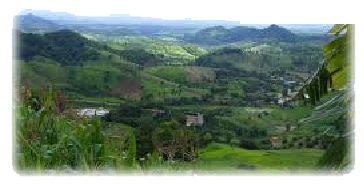Ecological Sciences
ation of the Sun and various phenomena which we see on its surface, and which moves through interplanetary space, helps us understand the causes and subsequent evolution of solar activity that affects Earth's space climate and environment. The climate and space environment of Earth are significantly determined by the impact of plasma, particle, and radioactive outputs from the Sun. Therefore, it is essential to understand the Sun, determine how predictable solar activity truly is, and develop the capability to forecast solar activity and the evolution of disturbances as they propagate to Earth.
BSSRO encourages and fosters an environment of learning and creativity. Graduate students have the freedom of using a multitude of techniques and approaches ranging from molecular biology to sophisticated computational methods to address scientific questions in broad areas of ecology. The biological sciences building where we are housed fosters interactions with other laboratories in neighboring departments within the institute. In addition, students are encouraged to interact with ecology laboratories in nearby research institutions in Bangalore, thus promoting collaborative and interdisciplinary scientific inquiry. Students are also offered access to some of the best field stations in India, well-equipped laboratories and an excellent library.

The department BSSRO encourages its students to attend national and international conferences in order to showcase their work, meet other researchers and scientists in the field and to widen career opportunities
The Centre for Ecological Sciences at the Indian Institute of Science, Bangalore offers exciting opportunities for research in a variety of areas in ecology. These include Animal Behaviour, Evolutionary Biology and Sociobiology, Community and Habitat Ecology, Molecular Genetics and
Conservation Biology, Large Mammal and Forest Ecology, and Climate Change. The projects consist of theoretical, laboratory and field-based research with the different approaches being used in a complementary manner.

Ecology
Ecology, or ecological science, is the scientific study of the distribution and abundance of living organisms and how the distribution and abundance are affected by interactions between the organisms and their environment. The environment of an organism includes both physical properties, which can be described as the sum of local
abiotic factors such as insolation (sunlight), climate, and geology, as well as the other organisms that share its habitat. Ecology is usually considered a branch of biology, the general science that studies living organisms.
BSSRO.Organisms can be studied at many different levels, from proteins and nucleic acids (in biochemistry and molecular biology), to cells (in cellular biology), to individuals (in botany, zoology, and other similar disciplines), and finally at the level of populations, communities, and ecosystems, to the biosphere as a whole; these latter strata are the primary subjects of ecological inquiries. Ecology is a multi-disciplinary science. Because of its focus on the higher levels of the organization of life on earth and on the interrelations between organisms and their environment, ecology draws heavily on many other branches of science, especially geology and geography, meteorology, pedology, chemistry, and physics. Thus, ecology is considered by some to be a holistic science, one that over-arches older disciplines such as biology which in this view become sub-disciplines contributing to ecological knowledge.
Reducing our ecologic footprint
Through innovative discovery, life-cycle thinking, and sustainable management of natural resources. Understanding the dynamic, complex processes that link human activity and ecological systems is essential to improving the way we manage our natural resources and develop solutions to the environmental threats facing the world today. Effective discovery and learning in this area will require collaboration among biological, chemical, computational, physical, health, and social scientists, mathematicians, and engineers.

The Ecological Sciences and Engineering (ESE) Program provides students with an interdisciplinary/interdepartmental educational experience that integrates the science and engineering concepts needed to address grand challenges in environmental sciences.
PROGRAM THEMES
- Earth Systems Interactions
- Green Technology
- Human Impacts on Biosphere Processes
- Managed Ecosystems
- Sustainable INDAIN Environments
- Man and Biosphere Programme
- Biosphere Reserves
- Biodiversity and Climate Change
- Capacity Building and Partnerships
- BSSRO Centre for Mediterranean Biosphere Reserves
ENVIRONMENTAL MANAGEMENT AND ECOLOGICAL SCIENCES
The challenge for courses in environmental management, earth and ecological sciences is to help build capacity and skills so that communities can respond wisely to the complex changes expected in the next decades .
The skill areas needed include
Forecasting -
an ability to predict change; environmental, social and economic.
Decisiveness -
skills to weigh the risks and trade-offs - short term vs long term, the impacts of what we do or don't do now, how future scenarios are influenced by our action or inaction.
Negotiation -
to manage principles, objectives and outcomes with government, stakeholders and communities.
Implementation -
achieving an adaptive management framework More specifically, fire managers will need to understand changes in our risk environment and how these impact on::
- Ecological responses in flora and fauna
- Timber harvesting
- Water yield and quality
- Asset protection and risk reduction
- ecosystem services such as carbon storage and tourism
The following diagram shows seven key perspectives that a course designer might consider to develop skills in relation to the management of fire in the landscape. These perspectives aim to give a sense of the whole, rather than be clearly demarcated categories.